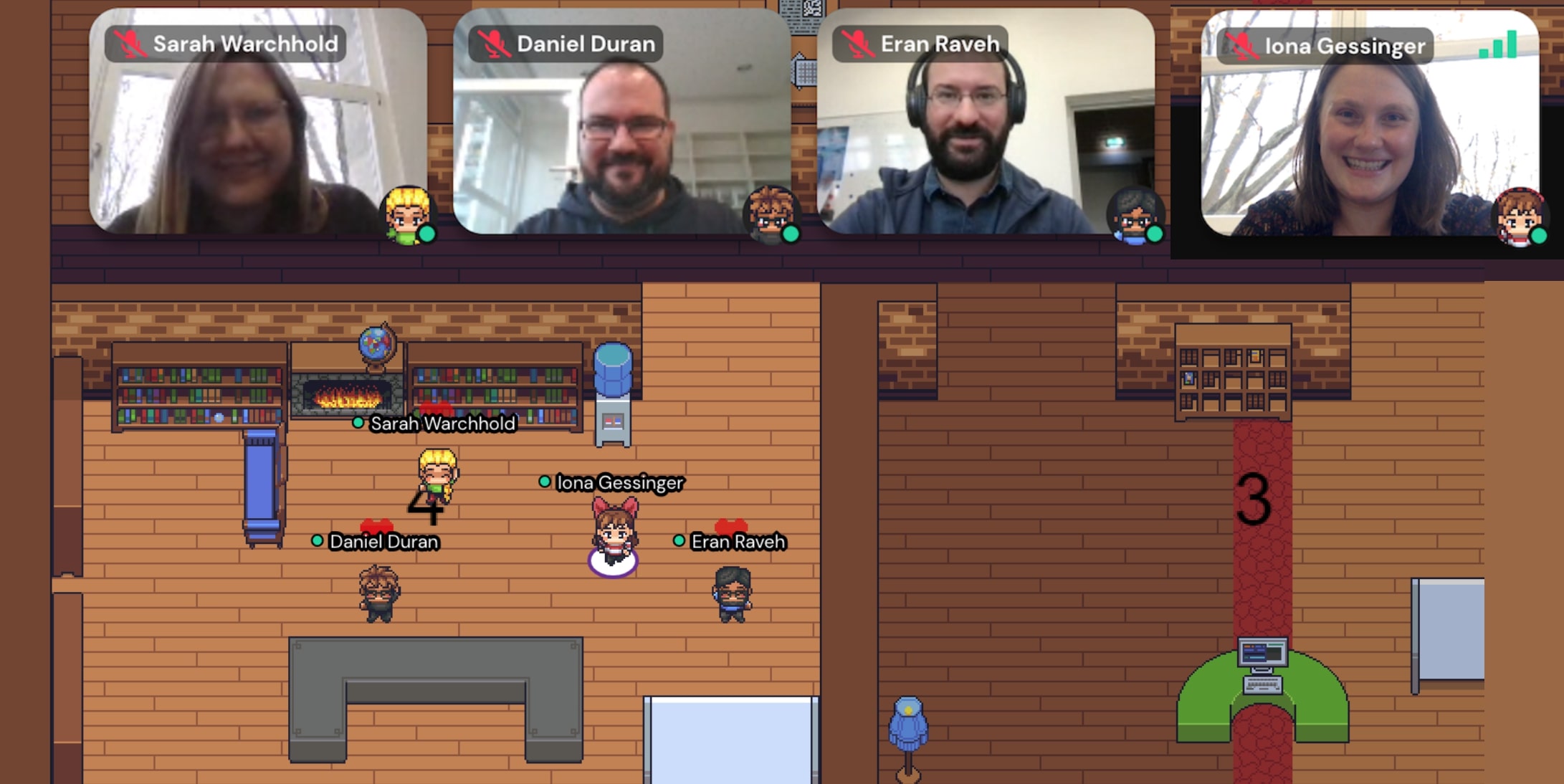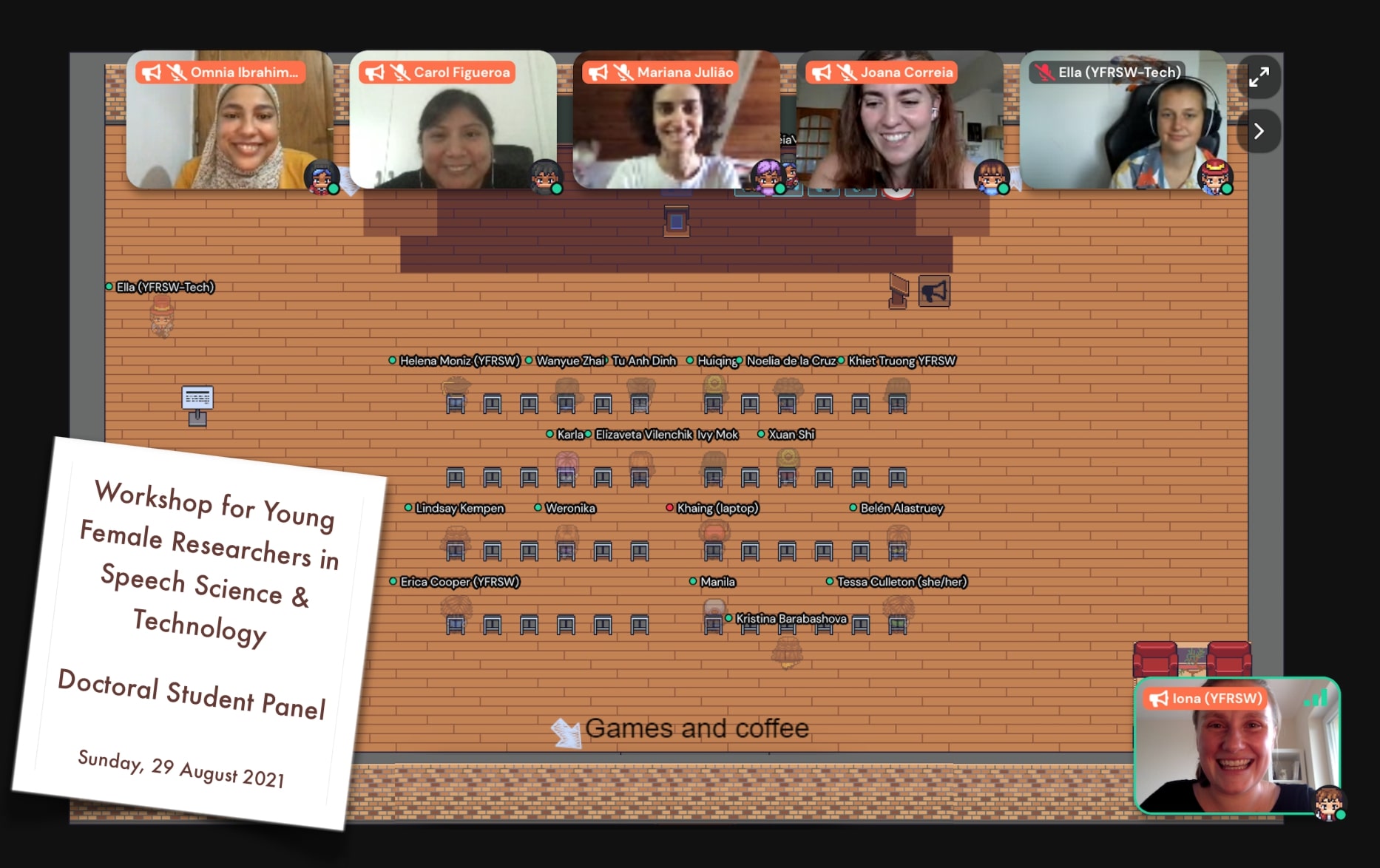23 Feb 2022
The proceedings of our conference about human perspectives on spoken human-machine interaction (HMI) are now available
online.
📖 #openaccess 🔓
The papers presented at SpoHuMa21 explore spoken HMI from various angles.
The contributions by Ibrahim & Skantze and Sinha & Siegert examine how human speech in HMI changes depending
on the addressee and what challenges are involved in understanding its variability. Allen and Leisten
& Rieser investigate another aspect of human speech, namely gender-based perception and behavior
differences, and how these may influence the attitude towards speaking devices. Various medical applications
that leverage spoken HMI are presented by Collins, Bevacqua, De Loor, & Querrec, Attas, Kellett,
Blackmore, & Christensen, and Pevy, Christensen, Walker, & Reuber. These include seizure
narration, emotion dimensions of speakers with anxiety disorders, and virtual medical assistance. Finally,
Honkalammi, Veivo, & Johansson and Chen, Liesenfeld, Li, & Yao deal with cooperative
aspects of spoken HMI, such as advice giving in learning processes and the effect of computer disfluency on
memory recall.
Many thanks to the authors for their contributions and, of course, to FRIAS (Freiburg Institute for Advanced Studies) for having us!
21 Jan 2022
My dissertation Phonetic Accommodation of Human Interlocutors in the Context of Human-Computer Interaction is now published
and available online. 📖 #openaccess 🔓
09 Dec 2021
I am happy to announce that I defended my dissertation today — 6 months to the day after its submission!
It was a great opportunity to celebrate the work I’ve done over the past few years with family, friends, and colleagues.
I would like to express my sincere gratitude to everyone who has accompanied me on this journey! 🙏
18 Nov 2021
I had the pleasure of organizing the FRIAS Junior Researcher Conference - Human Perspectives on Spoken Human-Machine Interaction (SpoHuMa21)
together with Sarah Warchhold (University of Freiburg), Daniel Duran (ZAS Berlin), and Eran Raveh (Hyro AI).
The conference was supported by the Freiburg Institute for Advanced Studies (FRIAS) – special thanks to Kyra Vogt and Attilio Ferrarese!
SpoHuMa21 featured submitted talks by young researchers, invited talks by Michelle Cohn (University of California, Davis, USA), Friederike Eyssel (Bielefeld University, Germany), Roger K. Moore (University of Sheffield, UK), Catharine Oertel (Delft University of Technology, The Netherlands), and Karola Pitsch (University of Duisburg-Essen, Germany), as well as various interactive discussion sessions.
We had a great time discussing spoken human-machine interaction from many different angles! 🗣 🤖
 The organizers of SpoHuMa 2021 in the FRIAS Gather space
The organizers of SpoHuMa 2021 in the FRIAS Gather space
30 Aug 2021
Yesterday, the Workshop for Young Female Researchers in Speech Science & Technology (YFRSW) took place as a satellite event of Interspeech 2021. A total of 21 undergraduate and master’s students presented their projects in the field of speech science and technology.
Thank you for your participation and the great poster presentations!
I would also like to highlight our doctoral student panel, consisting of Carol Figueroa (Furhat Robotics), Omnia Ibrahim (Saarland University), Mariana Julião (INESC-ID/IST/Lisbon University), and Joana Correia (Spotify), who answered our attendees’ questions with much dedication.
Thank you so much for sharing your experience! 🙏
 Doctoral Student Panel @ YFRSW 2021
Doctoral Student Panel @ YFRSW 2021
 The organizers of SpoHuMa 2021 in the FRIAS Gather space
The organizers of SpoHuMa 2021 in the FRIAS Gather space Doctoral Student Panel @ YFRSW 2021
Doctoral Student Panel @ YFRSW 2021